Buying whole food in bulk, any food in bulk, is almost always a much better use of your time and money. I have been doing this for years. The reason I purchase in bulk is because I want to make our money stretch as far as it can while saving time.
There are a plethora of options for buying real food in bulk. Below are my favorite ways and tips and tricks I learned along the way—so you don’t waste your time and money.
Some of this takes planning and preparation which is not difficult. Once you have the system that works best for you in place, you will rarely need to re-work your steps. Before you buy in bulk, you may need to get your kitchen, freezer, and pantry in order.
Options for Bulk Purchasing
- Bulk Food Co-ops
- CSAs
- Bulk Wholesale Stores
- Local Health Food Stores
- Farmers Markets
- Ranches
- Pick-Your-Own Farms
As you can see: you have a lot of options. Most communities in the U.S. have at least one if not more of the above options. Many have every one of them within an hour drive.
I am sure there are more bulk-buying options than the ones I have shared. However, these are the ones I have personal experience with so I will give you my advice accordingly. Let’s get started!
Bulk Food Co-Ops
Often you can register for bulk food co-ops online—companies like Azure Standard, Bountiful Baskets, and Frontier—and then pick up your food at a drop-off location. My experience thus far has been with Azure Standard and Frontier. So far, they have both been exceptional. However, you may not live close to a drop-off location.
One of the great things about Azure Standard is I can shop online and keep a running wish list, adding or subtracting foods as needed. You can find just about anything you need with Azure. If I find a better deal locally or online (which can happen) then I just delete the product off of my order before the cut-off time for my once-a-month drop-off.
Frontier Co-op carries herbs, spices, food mixes, and personal care items.
Bountiful Baskets, a non-profit group, focuses on fruits and vegetables. After you purchase the minimum “basket” you can buy “add-on’s” like bread, etc. Their website gives a lengthy and detailed description of how their process works, and they are located in many states.
There can be minimum purchases with co-ops and sometimes there are hidden fees. With Azure and Bountiful Baskets, they are up front with their costs if you take the time to read through their site.
With that said, after looking at these companies, it may behoove you to engage some local friends in organizing a drop-off point. Both Azure and Bountiful Baskets give you training and the ability to get a site going with ease.
CSAs (a.k.a. Community Supported Agriculture)
CSA, or Community Supported Agriculture, can vary greatly depending on the state and the actual CSA. I participated in one that was semi-local. It was in the same state but a little over 2 hours away from the drop off point.
We used a large family-owned organic farm with a CSA. The “shares,” as their produce groupings were called, greatly varied with the season. That was great for me, but not so much for some in my family.
I chose to order a family share because we are a large family. It helped me save time and money by not going into the grocery store and buying other food that wasn’t on my list or wasting time driving around to find the best deal. The other positive was our CSA had foods like artisan cheeses and breads, free range organic eggs, fruit shares, and winter vegetable shares.
Some of the local shares can give even better deals. Often these local groups will give you an even greater reduction in price if you volunteer your “man hours” during harvest.
The only downside to CSA shares is you pay the money up front, and if the farm is hit hard with something like a huge hail storm, your produce may not come in like you hoped. Hence the name “community supported agriculture”—you are investing in this farm. You are helping the farmer get you your food.
Many of the larger CSA’s offer canning shares too. For me, this was not cost effective, so we didn’t do it. Know your prices per ounce!
If you are interested in finding more information on a local CSA near you this is a fabulous site.
Bulk Wholesale Stores
Bulk wholesale stores are those like Sam’s Club or Costco. The positives about these stores is that they truly do have everything. Due to the fact that they can buy at such high volume in such large quantities you can get the cheapest prices on high quality food, especially Costco.
I miss Costco! Since we moved we haven’t had one near us. However, Sam’s Club has added a lot of organic products since we have been here. I seem to find new products each time I go.
These companies can have the best prices—but not always. You will also have yearly membership fees. So be sure you are using the membership enough to make it count. If you aren’t, don’t get the membership and go with your other options.
Local Health Food Stores
This seemed to be the most work, but it was also the biggest pay off. Some friends and I would go each year with a list of foods we would divide between us and we would use the store as a middle-man to order these items in bulk. Often my family was ordering so much that I could go on my own and make a large enough order to count.
Here’s how this worked: we would make our list together and divide the calls. One friend would call a couple of companies and I would call another group of companies in the area. We only did this two years in a row before we saw that one company had all the others beat every year.
What I liked about this was that we invested in our local store. They were so helpful—always so knowledgeable. Everyone around the area ordered so much from them, so we all received a great price. They put in large orders to companies like Frontier (and other natural health food groups like Rainbow) weekly so if I couldn’t afford my 50 lbs. of oats when my friends ordered, I could get them at a later date. Also, if I only wanted 4 bottles of Bragg’s ACV (for instance) then my friends would take the other 8 bottles. I never had to buy a whole case if I didn’t want to.
The only downside was that if it was not ordered in a large enough quantity I might have to pay 10% above wholesale price. Still not too bad. Call your local stores. It may be well worth it.
Farmer’s Markets
Farmer’s hate me. Just kidding. They actually love me. Why? I learned how to have a relationship with them—a real give-and-take.
Oh how I miss our former Farmer’s Market. I had a really great man I worked with. Many people think that Farmer’s Markets are over priced. They can be for sure, but not if you know how to get a deal.
- Go in with your wits.
- Make friends with the farmers.
- Ask them about how they grow.
- Be kind to them.
- Let them know that you are the type of person to stock up on a lot of food. Tell them you can and freeze.
- Let them know you are looking for the best deal and would like to work with them.
- See what they can do for you.
- Buy a lot when you do buy from them.
- Make sure you are armed with your price before you go to the market.
For instance, I knew that for me to can (or freeze) green beans, I would need to make it worth my time and money. I took the price that I paid at Costco, because at the time they were the cheapest, and compared that to my Ball canning books figures.
That meant I had to get so many bushels or pounds of green beans from the market to keep my cost lower then buying from Costco. I had my figure and I had my farmer. Now I needed to get him to understand.
I had purchased a few things from him before and had already asked him when the green beans would be ready. He told me the week and I let him know I would be there. Note: if you tell them you’ll be there, try to keep your word, it means a lot to them.
I came in, he saw me right away. He reminded me that the beans were there and the they were just perfect. I reminded him that I was looking for a good deal. He finished his dealings with the other customers and pulled me to the side. Always be respectful of their ways. If they are going to give you a good deal, they won’t broadcast it and don’t want you to do the same.
He gave me his price. I told him it was too high for me. He lowered it. I told him it was still too high. He asked why and I gave him my reason. He then asked what the price I was looking for. To make it worth his while and mine, I went up just a little more then I had intended and we had a deal.
Our fingers were green from all of our stringing of the beans! And we had the best beans ever!
Due to that one good deal, I had many, many others with this same farmer. We always came away loaded with fabulous produce at a rock bottom price. He was happy because he didn’t have to take it back to his farm, and I was happy with the deal.
One more tip: Go in early to see what they have buy a little then, then return at the end of the day. You always get the better deal at the end of the day. If you only go at the end of the day, they won’t be as happy to see you though. Make it work for both of you. Remember: give and take 😉
Ranches (and Farms)
I use ranches and farms for my bulk meat buying. Small farms will often have chickens, eggs, and milk as well.
The ranches are more for milk shares, sides of beef, pork, and mass chickens. Both local farms and ranches can have what you need but you need to find what will work best for your family.
Since I am not a farmer or rancher, I really have no idea how they come to their prices or why. Rather than thinking they are trying to”rip me off” it’s best to go in with an attitude of respect for what they do and why they do it. Compare prices and give them respect.
If you know the farm or ranch families even better. You may not get a more favorable price but you know without a doubt you can trust them.
We use the same ranch every year for our cow share. We drive a good ways to butcher the cow with my parents. It’s become a family tradition to save money and get great meat. Read more about it here: “5 Buying Tips for Grass-fed Beef.”
Pick-Your-Own
These are farms and orchards that allow you to pick your own fruit or vegetables. The only downside it that if you’re not checking into it, you may be paying more to pick your own than if you let them pick for you.
Be sure you call all the farms or orchards you can for the best deal and ask them the price per pound for picking your own vs. the pre-picked produce. You should also ask them about their reduced rate on boxes of fruits and veggies. I have come away with 25 lbs. of apples for $10 per box. Perfect applesauce apples!
PickYourOwn.org is a site I have used many times over the years to find orchards and farms near me. Be sure to call ahead and find out the details. Don’t be shy!
Almost Free Bulk Foods
Now I don’t think this post would be complete without mentioning a couple options that are practically free with the exception of your time, work and energy.
Planting your own garden. Of course this isn’t free initially but lets focus on how it could reduce costs. If you buy heirloom seed in the beginning or seed that is from not GMO or hybrid, you can save your seed and keep sowing each year.
Saving your own seed is easy and there are many great books that can teach you how. You don’t need a mile between each field to do it either. Check out one of my favorite seed saving books Seed to Seed. Be aware that there are some guidelines and laws surrounding seed saving. Be sure to do your research before you start saving!
Work-for-your-food community gardens. I wasn’t sure what else to call these gardens, but they exist. In our community, there is a large community garden that requires nothing from you but your labor. Give it willingly and diligently, and you will end up with a load of produce at the end of your time.
According to a friend of ours, she only works about 2 hours each shot and has way more then she can use each time she goes. What a great blessing!
Find all my posts in the Whole Food Series:
- Whole Food on a Budget: 5 Tips to Cheaper Eating
- A Skeptics Guide to Whole Food
- What’s Really the Difference? Nutritional Differences in Whole vs. Processed Foods

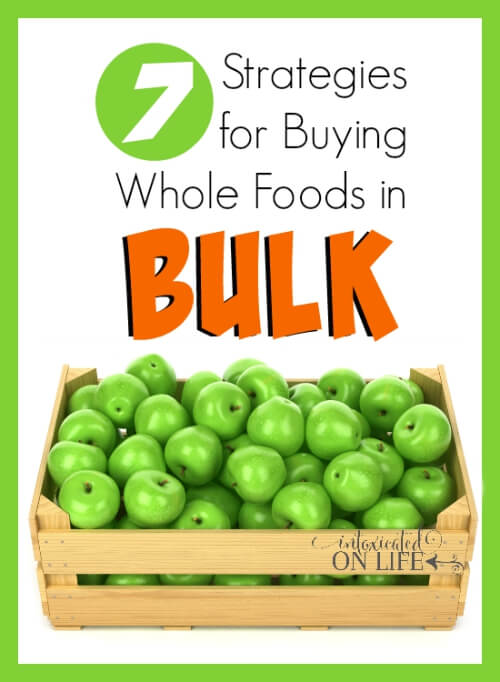
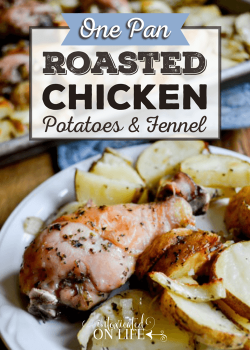
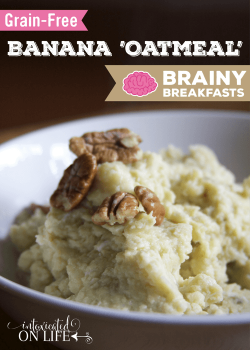
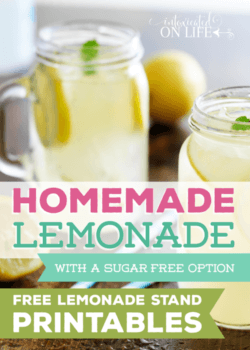
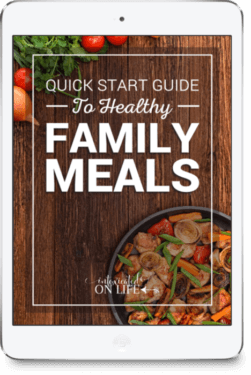

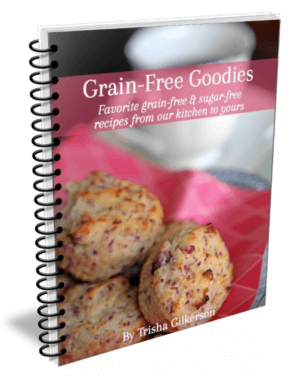
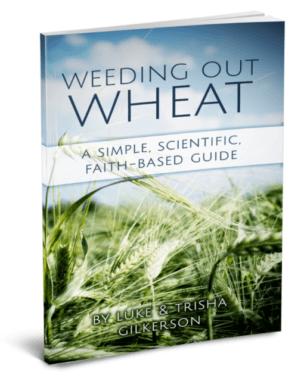
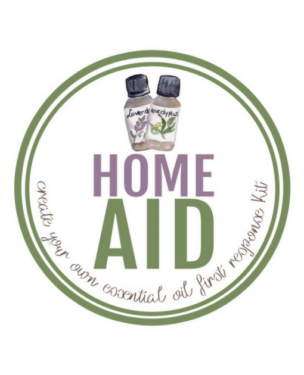

Wow! I am so impressed!
As I read this post, I am thinking, “What a Proverbs 31 woman – gathering her food from afar.”
Thanks for sharing so many great tips and suggestions for buying whole foods in bulk.
I found your post today on Works for Me.
Hope you have a blessed day~
Melanie
Melanie… The day I read this I cried! What an encouraging word. I do try, but surely have far to go. I appreciate your comment more than you know. Blessings ~Amanda
These are great tips! I just bought a 20 lb box of frozen blueberries from our local farmer and we’re thinking we should buy our natural peanut butter in bulk. We go through pb so quickly! Thanks so much for sharing at the Let’s Get Real Link Up!
Awesome! I’d love to have that resources here fro blueberries. I definitely do buy our PB in bulk. I am working on pricing things out to see if making it from peanuts is cheaper. Knowing it doesn’t take too long to whip some up, it might be worth it 🙂
We have bountiful baskets here and i love it!!! Always beautiful produce. The blueberries last time were WONDERFUL! !search their site and try your local one out. At least once.